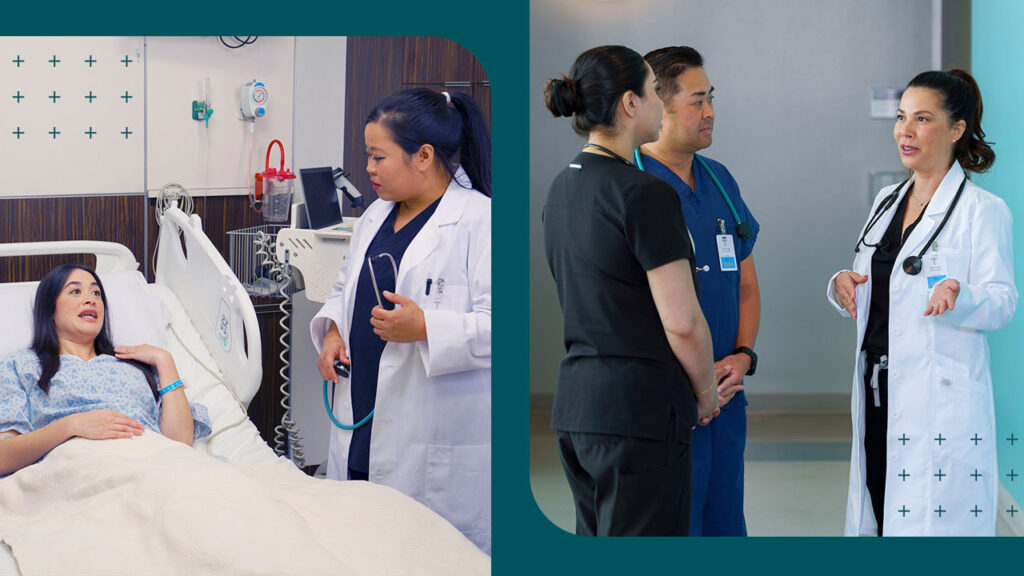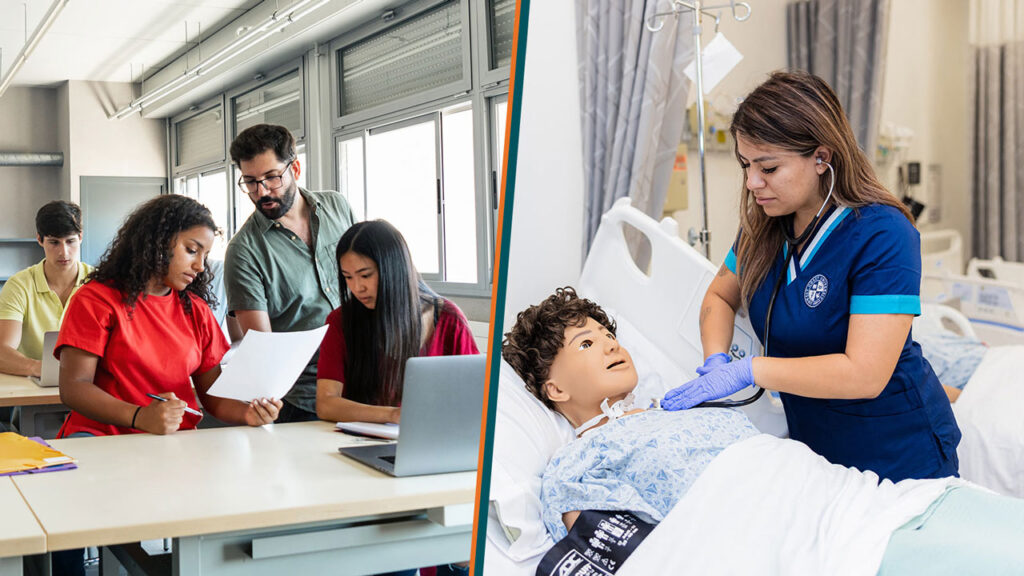West Coast University, which has been educating healthcare professionals for more than a century, first established roots in Texas in 2012, and the commitment to enhancing the learning environment for students there has been ongoing ever since.
The school opened a new campus in Richardson in 2021 and it continues to expand its offering of programs—the latest addition being the new Texas Master of Science of Occupational Therapy program. This complements the California MSOT program, which was already being offered at WCU’s Center for Graduate Studies in Los Angeles.
The Texas MSOT program is accepting applications now and will enroll its first cohort of students in September 2023. (See the end of this post for more information about our accreditation from the Accreditation Council for Occupational Therapy Education.)
“Our MSOT program in Texas is designed by faculty who are passionate experts in their field,” said Julie Hebert, Interim Dean and Associate Professor for the MSOT program at WCU-Texas. “Our goal is to deliver a student-centered curriculum that gives students the confidence and skills they need to become entry-level occupational therapists.”
What to Expect in the MSOT Degree Program in Texas
Although similar to physical therapy, occupational therapy is a distinct specialty with a distinct objective for its patients. Maybe the easiest way to differentiate the two fields is to say that PT is designed for patients who may need to exercise/strengthen a body motion, typically a gross motor skill like regaining full range of motion after an injury. Meanwhile, OT is designed for patients who may need to re-learn how to do a certain activity, typically a fine-motor skill like writing or brushing their teeth.
Once an MSOT student has started their classes, the path to commencement is designed to take as little as two years to complete.
In the first year, students will spend the majority of their time in the classroom where they will learn the fundamentals of occupational therapy. This will include the students being presented with evidence-based research that is critical for informing their proposed interventions for patients.
Outside of the classroom, students will observe patients in each of the three life stages (child, adult, and older adult) in a practice setting. They will do one week of observation, referred to as Level 1 fieldwork, for each of these life stages.
In the second year, the classroom-to-fieldwork script is flipped with the majority of the student’s time spent in in the field. An additional change is that the fieldwork is classified as Level 2, which simply means that the students will transition from observation to action. Students will complete two of these Level 2 fieldwork activities during their second year, each one consisting of 12 weeks.
Admission Requirements
Students who are interested in joining this first Texas MSOT cohort must have completed their bachelor’s degree from a regionally accredited college with a minimum 3.0 GPA over the last 60 credit hours. They must also complete all steps in the application process by Dec. 1, 2022.
Students who may still be taking prerequisite undergraduate courses in the fall semester can initiate and submit their application prior to completion of all prerequisite classes, however any pending requirements must be met and verified by the Centralized Application Service for Occupational Therapy System (OTCAS) by the deadline.
The steps in the application process include the following:
- Completing an OTCAS Application with official transcripts for all previous higher education institutions attended
- Submitting three letters of recommendation
- Participating in an admissions interview
Learn more about the Texas MSOT program and its admissions requirements, or reach out to MSOT-Texas Admissions with any questions you have about enrollment.
The WCU entry-level occupational therapy master’s degree (MSOT) program has applied for accreditation by the Accreditation Council for Occupational Therapy Education (ACOTE) or the American Occupational Therapy Association (AOTA), located at 6116 Executive Boulevard, Suite 200, North Bethesda, MD 20852-4929. ACOTE’s telephone number c/o AOTA is (301) 652-AOTA and its Web address is www.acoteonline.org. The program must be granted Candidacy Status, have a pre-accreditation review, complete an on-site evaluation, and be granted Accreditation Status before its graduates will be eligible to sit for the national certification examination for the occupational therapist administered by the National Board for Certification in Occupational Therapy (NBCOT). After successful completion of this exam, the individual will be an Occupational Therapist, Registered (OTR). In addition, all states require licensure in order to practice; however, state licenses are usually based on the results of the NBCOT Certification Examination. Note that a felony conviction may affect a student’s ability to sit for the NBCOT certification examination or attain state licensure.
The WCU entry-level Master of Science in Occupational Therapy (MSOT) program has applied for accreditation by the Accreditation Council for Occupational Therapy Education (ACOTE) or the American Occupational Therapy Association (AOTA), located at 6116 Executive Boulevard, Suite 200, North Bethesda, MD 20852-4929. ACOTE’s telephone number c/o AOTA is (301) 652-AOTA and its web address is www.acoteonline.org. The program must be granted Candidacy Status, have a pre-accreditation review, complete an on-site evaluation, and be granted Accreditation Status before its graduates will be eligible to sit for the national certification examination for the occupational therapist administered by the National Board for Certification in Occupational Therapy (NBCOT). After successful completion of this exam, the individual will be an Occupational Therapist, Registered (OTR). In addition, all states require licensure in order to practice; however, state licenses are usually based on the results of the NBCOT Certification Examination. Note that a felony conviction may affect a student’s ability to sit for the NBCOT certification examination or attain state licensure. With the COVID-19 endemic, the university is currently offering some on-ground courses in the distance education modality, as needed. As the situation changes, students may be expected to return on-campus to complete their program on-site in the regular learning modality as outlined in the university catalog.
WCU provides career guidance and assistance but cannot guarantee employment. The views and opinions expressed are those of the individuals and do not necessarily reflect the beliefs or position of the school or of any instructor or student.



